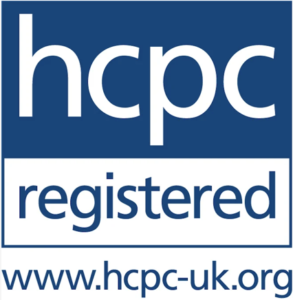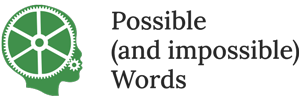About Doctor Aubrey Nunes
Speech and Language Therapist
With three degrees and my professional qualification, I still learn new things every day
All my life, I have been fascinated by speech and language…. I remember at school one day our teacher showed us a picture of a cat on a mat…. “C, A, T makes cat”, she said.
Profession, research and qualifications
I am a Speech and Language Therapist, registered with the Health and Care Professions Council (Registration SL042869). I am a member of the Royal College of Speech and Language Therapists (Registration number RC0006495).
I have a BA in sociology (2.1), an MA in theoretical linguistics, a PhD, and a diploma in speech and language therapy in 1979
When I was studying sociology it occurred to me that the process of learning to talk was vulnerable, and I did a course in psycholinguistics as part of that degree.
After qualifying as a Speech and Language Therapist, I went on to work in the NHS, mostly in community clinics. I treated a broad range of issues, including language development, what are commonly regarded as articulatory issues, deep unintelligibility, but also disfluency and dysphonia.
I then started doing research which ended up as a PhD in linguistics at the University of Durham. My research was in the area, known as phonology – assembling speech sounds into words. In a broad sense, this was in a framework inspired by the work of Noam Chomsky. I described some well-known patterns in the various incompetences in children’s speeech and language and some patterns which had not been described before. I considered the relation between phonological theory and the widest possible range of incompetences in speech from those of typically developing children to those with the most severe problems. I asked: Why do incompetences pattern the way they do? It is odd that they pattern at all. And I described the therapy which I had been developing since 1983. This was based on possible words, rather than actual words, making use of the patterns which occur naturally in children’s speech. By this approach, the fact that therapy is going on is hidden as far as possible. Some small children are well aware that they need help with their speech. But to my way of thinking there no advantage in making this more evident than it already is. So unless a child actually asks for feedback (and some children do), they are congratulated for whatever they say, no matter whether this is right or wrong. If they don’t say things quite right, the next task is adjusted to try and ensure that it is successful. The learning is from the structuring of the tasks. (See Nunes, 2002, 2006, 2023). Surprisingly, perhaps, saying a carefully-structured sequence of possible words was clearly therapeutic and cost-effective. I successfully defended my thesis in 2002. The novel therapy, my examiners said, was my most important result.
Subsequent research has shown that this idea of working with possible words was in fact an update of thinking which was seemingly first proposed in 1669. One aspect of my updating is with respect to word stress, as in the difference between cannon and canoe.
Apart from my practice, I now study how speech and language would seem to have evolved. I raised this issue in a peripheral way in my 2002 PhD. But it is now my main research focus. And I have shifted to the area known as syntax – putting words together to form sentences. Significantly, many children have problems in more than one of these areas. For instance, many children who have problems learning to talk go on to have problems learning to read and write. I am now in the process of applying for a second doctorate under the supervision of Professor Adger at Queen Mary University London. My research program is roughly set out here. (See References for the literature I refer to). This involves linguistics, biology, anthropology, and now a branch of mathematics. But the main focus is linguistic. Even though this is a theoretical study, the eventual clinical application is always in my mind.
Current practice
I now treat a similar range of issues involving fluency, the formation of sounds, forming syllables, the syllables together as words, putting the words together as sentences, in other words mainly those conditions involving the ‘learnability space‘, almost the same as my work in the NHS, but now more theoretically informed. I focus on those issues where I have relevant, personal, professional, and research experience, broadly-speaking, clinical linguistics. This includes some issues relating to literacy. But I do not treat issues of eating, drinking, and swallowing, or issues of personal identity, acquired disorders, or forms of mutism.
My history of speech / language delay
My mother used to tell me that my speech and language were very delayed. I can remember her saying once when I was about nine, “Oh, do stop mumbling!” I had no idea what she was talking about. Then one of my children had only one word when he was three. One of his friends was asking if he was ‘mentally handicapped’. I was worried. I did not know anything about speech and language issues. My child’s problems very gradually resolved – actually with very little in the way of direct help. It now seems likely that there is a genetic connection between our two cases. As soon as I pointed this out to my mother, the family history changed. But my worries about my child many years ago were part of what led me to linguistics and the study of how children learn speech and language, why this is actually quite mysterious, and how there can be long term consequences of deep and severe delay, even if this seems to resolve. This underpins my concern for acting promptly where action is necessary and appropriate.
Childhood curiosity
Ever since childhood, I have been fascinated by language. Long before I learnt to read, I remember asking myself why my parents seemed to say DROING ROOM when there were no other words with the OI vowel before the NG sound. It didn’t occur to me to ask my parents.
My parents would probably have told me that in the days of my grandmother (who had largely designed the house) it was the custom for men and women to separate after dinner. And one group would go to the drawing room or withdrawing room. My curiosity about DROING was probably my first thought about linguistics.
Commitment to equity
I was brought up to treat everyone with equal care and respect, irrespective of their situation in life or the colour of their skin. All my life I have followed that commitment and brought up my children to do the same. This commitment has a direct bearing on therapy, in my view: children deserve respect just as much as adults. It also helps to make the therapy fun.
The how and the why
The reason I make the theoretical choices I do is that I believe there is a close, necessary connection between the issue of evolvability and problems of speech and language development in children. I make the case for this in my proposal here. Noam Chomsky and others talk about ‘the logical problem of language acquisition’. But there is also an emerging question about how speech and language evolved in the human species – what Chomsky now calls ‘evolvability’. This is where the mathematics comes in.
This website
This website is for parents with the worries that I once had.
Contact Doctor Aubrey Nunes



